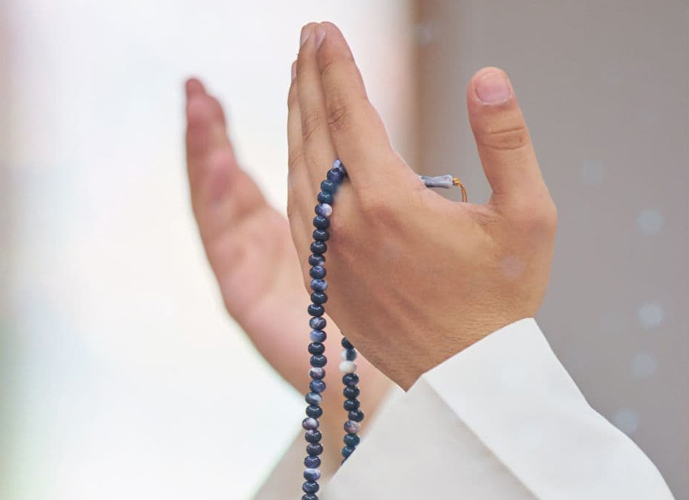The Holy Prophet (peace be upon him and his household) said: "He who grieves a true Muslim cannot then compensate for it by offering him the entire world because it is not sufficient compensation (unless he repents and appeases the said person)." Bihar-ul-Anwar, vol. 75, p. 150
Imam Kadhim (A.S) said: "Among your most compulsory duties towards your Muslim brother is that you conceal nothing from him which profits him either in this life or in the Hereafter." Bihar-ul-Anwar, vol. 2, p. 75
Imam Hassan, the second Imam (A.S), said: "Treat others similar to the way you would like for them to treat you." Bihar-ul-Anwar, vol. 78, p. 116
Imam Amir ul Mu'mineen Ali (A.S) said: "May Allah have mercy upon the person who services a right and removes a wrong, or refutes an injustice and establishes justice." Ghurar-ul-Hikam, p. 181
Imam Sadiq (A.S) said: "These four characteristics are from the manners of Prophets (A.S): righteousness, graciousness, patience and perseverance in tolerating misfortunes, and rising for the right of a believer." Tuhaf-ul-Uqul, p. 277
Imam Amir-ul-Mu'mineen Ali (A.S) said: "Surely, it is the common people of the community who are the pillars of the religion, the power of the Muslims and the defence against the enemies. Your leaning should therefore be towards them and your inclination with them." Nahjul Balagha, Letter 53
Imam Sadiq (A.S) said: "In no way is Allah worshipped better than by fulfilling the right of a believer." Al-Kafi, Vol.2, p. 170
The Holy Prophet (A.S) said: "He who hurts a Muslim believer, surely he has hurt me." Bihar-ul-Anwar, vol. 67, p. 72
The Holy Prophet (A.S) said: "He who unlawfully and usurpingly deprives a believer of wealth, Allah will continue to be displeased with him and does not accept his good actions that he fulfills; and none of them will be recorded among his good deeds until he repents and returns the wealth which he had taken to its owner." Mustadrak-ul-Wasa'il, vol. 17, p. 89
Greetings
The Holy Prophet (A.S) said: "When you meet each other then initiate greeting (salam) and embrace; and when you separate from each other, then depart with seeking forgiveness." Bihar-ul-Anwar, vol. 76, p. 4
Imam Husayn-ibn-Ali (A.S) said: "Seventy rewards is the share of the one who initiates a 'greeting' and only one reward belongs to the one who returns the 'greeting'." (When two people see each other, the initiator of the exchange of greetings receives a greater reward.) Bihar-ul-Anwar, vol. 78, p. 120
Imam Sadiq (A.S) said that the Messenger of Allah (peace be upon him and his hosuehold) gathered the children of 'Abd-il-Muttallib and said: "O' children of 'Abd-il-Muttallib! Initiate greetings, have regard for kinship, perform the night prayers while people are asleep, feed (others) food, and deliver good speech and thereby you will enter paradise in peace." Bihar-ul-Anwar, vol. 69, p. 393
Imam Sadiq (A.S) said: "He who initiates a greeting is more beloved with Allah and His Messenger." Wasa'il-ush-Shiah vol.12, p. 55
Enjoining Right and Forbidding Wrong
The Holy Prophet (A.S) said: "The time when my Ummah (Muslim followers) merely count on others to enjoin right and forbid wrong, in fact, they have declared a fight against Allah, the Exalted." Bihar-ul-Anwar, vol. 100, p. 92
Imam Amir ul Mu'mineen Ali (A.S) said: "He who abandons forbidding what is wrong theoretically and practically (and is indifferent while seeing vices committed) is a moving corpse amongst the living." Bihar-ul-Anwar, vol. 100, p. 94
The Holy Prophet (A.S) said: "To prevent a Muslim from doing an unlawful action is equivalent with Allah to the performance of seventy accepted Hajj." Mustadrak Al-Wasa'iI-ush-Shia'h, vol. 11, p. 278
Imam Amir ul Mu'mineen Ali (A.S) said: "Ask others to do good; you will thus be among the good doers. Desist others from evil with your action as well as your speech, and stay away, to the best of your ability, from he who commits it. Struggle for Allah as is His due; and the reviling of a reviler should not deter you in matters of Allah. Leap into danger for the sake of right wherever it may be." Nahjul Balagha, p. 392 letter 31
Imam Baqir (A.S) said: "Verily, enjoining what is right and forbidding what is wrong is the way of prophets and the method of good doers. It is such a great obligatory deed (wajib) by which other obligatory deeds can survive, other creeds can be saved, bargains are lawful, injustices are warded off, and prosperity can fill the earth..." Al-Kafi, vol. 5, p. 56
Imam Amir ul Mu'mineen Ali (A.S) said: "The firmness of the religion is due to enjoining what is good and forbidding what is wrong, and observing the limits of Allah". Ghurar-ul-Hikam, p. 236
The Holy Prophet (peace be upon him and his household) said: "The one who sees a wrong action done should prohibit it by his deed, if he is capable, of course; and if he cannot do that, he should prohibit it by his tongue, but if he is not able to do even that, he may forbid it by his heart." Wasa'il-ush-Shi'ah, vol. 16, p. 135




















